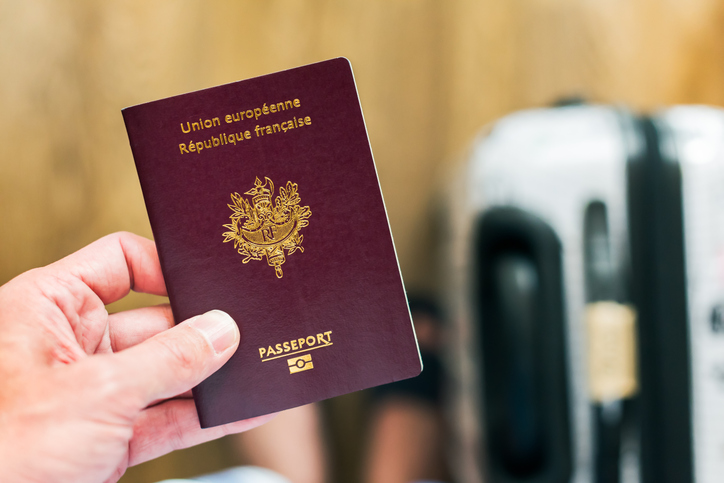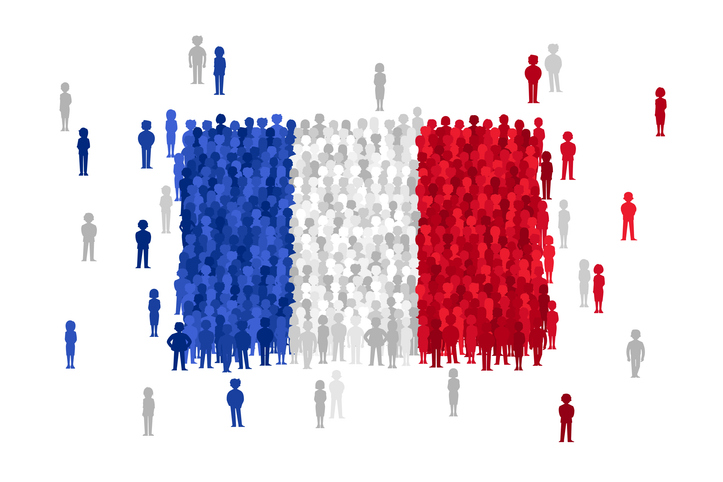x
Our website uses cookies. By continuing to use the site, you agree to our use of these cookies. To learn more about how we use the cookies and how you can manage them, please see our cookies policy.
France is a cultural and popular country that attracts thousands of ex-pats to both work and live in. Foreign nationals who are contemplating applying for French citizenship may wonder whether they need the assistance of an immigration lawyer, and if so, at what stages during the process. Recently, the law in France relating to immigration has changed, affecting the requirements for certain processes for foreign nationals seeking French citizenship.
This guide will explore when foreign nationals require a lawyer during their application for citizenship and the importance of international lawyers.
Click on the links below to jump to that section:
Find out why foreign nationals may want to apply for French citizenship.
The different routes for French citizenship
Discover the different situations in which you may need a French immigration lawyer.
Giambrone & Partners and the citizenship services we provide.
In 2023, over 97,000 foreigners obtained French citizenship, which has steadily increased from 2020. French citizenship provides numerous advantages, making it highly sought after by foreign nationals worldwide. Beyond the right to reside indefinitely in France, citizenship grants access to various political, social, and economic rights. It can also strengthen cultural identity, particularly for those with French ancestry.

As a French citizen, you have the right to live, work, and travel freely within the European Union (EU) or the Schengen area. This is particularly beneficial for those who wish to live or work in other EU countries without the constraints of a visa or residence permit.
Find out more about the legal framework and benefits of living in France with our expert guide here.
Each pathway varies in eligibility criteria, requirements and documentation, so working with an immigration lawyer who can address your situation and guide you through the process is important.
The main pathways for citizenship in France fall into two categories, applying by declaration or by decree, including:
Citizenship by birth or descent: Those born in France to non-French parents may apply for citizenship under certain conditions (jus soli). Similarly, those with French ancestry (such as a French parent or grandparent) can claim citizenship by descent (jus sanguinis).
Citizenship by marriage: After being married to a French national for at least four years, foreign nationals may apply for citizenship. Certain requirements must be met, including that you both live together as a married couple and can prove you have sufficient French language skills.
Citizenship by naturalisation: Foreign nationals who have lived in France for at least five years can apply for citizenship through naturalisation or residency. They must demonstrate their integration into French society, including language skills and strong knowledge of French history, culture and commerce.
Citizenship by adoption: French citizenship is only acceptable through a plenary adoption (simple et adoption plénière), where the child has no connection to their biological family. By French law, the child would be seen as a birth child, and would follow the same protocols.
Contact our citizenship lawyers for more information on the application process below.
While it is possible to apply for French citizenship independently, it is not recommended as it can lead to complications during the application procedure. Navigating the legal complexities of the French citizenship process can be daunting, particularly for foreign nationals unaware of the different immigration laws and elements required.
Compiling the necessary documentation is one of the most challenging aspects of applying for French citizenship. The French government requires extensive proof of identity, residence, employment, financial stability, language proficiency, and integration into French society. Missing, incomplete, or incorrect documentation can lead to delays or even rejection of your application.
International citizenship lawyers will guide you through the documents required depending on the pathway chosen. They will help acquire and translate documentation, ensuring they are up to standard to help reduce the risk of the application being rejected.
Citizenship applications involving family relationships can often become complex. For instance, if you are claiming citizenship by descent, proving your lineage might require sourcing difficult-to-obtain birth, marriage, or death certificates from multiple countries.
Also, foreign nationals who want to maintain dual nationality will benefit from expert legal advice to understand how each country handles the proceedings. France allows dual citizenship, so it’s important to confirm that your previous country of residence also permits this; the UK accepts dual nationality, however, there are countries that do not (like the Netherlands) and will require you to renounce citizenship.
French citizenship applications are conducted entirely in French and the required documentation must also be translated if it is not drafted in French. If you are not fluent in the language, completing the application process can be especially difficult.
Not all citizenship applications are successful on the first attempt. The French government may reject an application for various reasons, including insufficient evidence, lack of integration, or administrative errors. In such cases, you have the right to appeal the decision, but this can involve complex legal proceedings.
At the end of 2023, the French government passed new legislation on immigration that introduced harsher conditions in certain areas, including the application to become a French citizen. Amongst new laws on social security benefits, legislation now states that children born in France to foreign parents (jus soli) do not automatically receive French citizenship and must apply between the ages of 16 and 18. There have also been more stringent conditions regarding citizenship tests, where the standard language test has been raised to level B2.

Laws on citizenship and immigration often change, International lawyers stay up to date with the latest legislation, ensuring clients are aware of any changes and can offer guidance.
Giambrone & Partners is an international law firm with extensive experience assisting foreign nationals with citizenship applications. With an international team of lawyers well-versed in French, EU, and global legal systems, we can offer tailored legal advice and guidance to applicants worldwide, including those applying for French, Spanish, and Italian citizenship .
If you require guidance, or would like to request a callback, contact Giambrone & Partners’ team of immigration lawyers here.
Since January 2024, French citizenship laws have changed, raising the language requirements from B1 to an upper intermediate B2 level. When applying for French citizenship through naturalisation and residency, applicants must prove they can understand complex topics and be able to communicate with native speakers at a strong level.
For more information, read our expert guide on the requirements of French citizenship here.
Once your citizenship application has been approved, you can go to any town hall (mairie) in France to obtain a French passport. You may need to book an appointment, and children under 18 will require an accompanying parent or guardian.